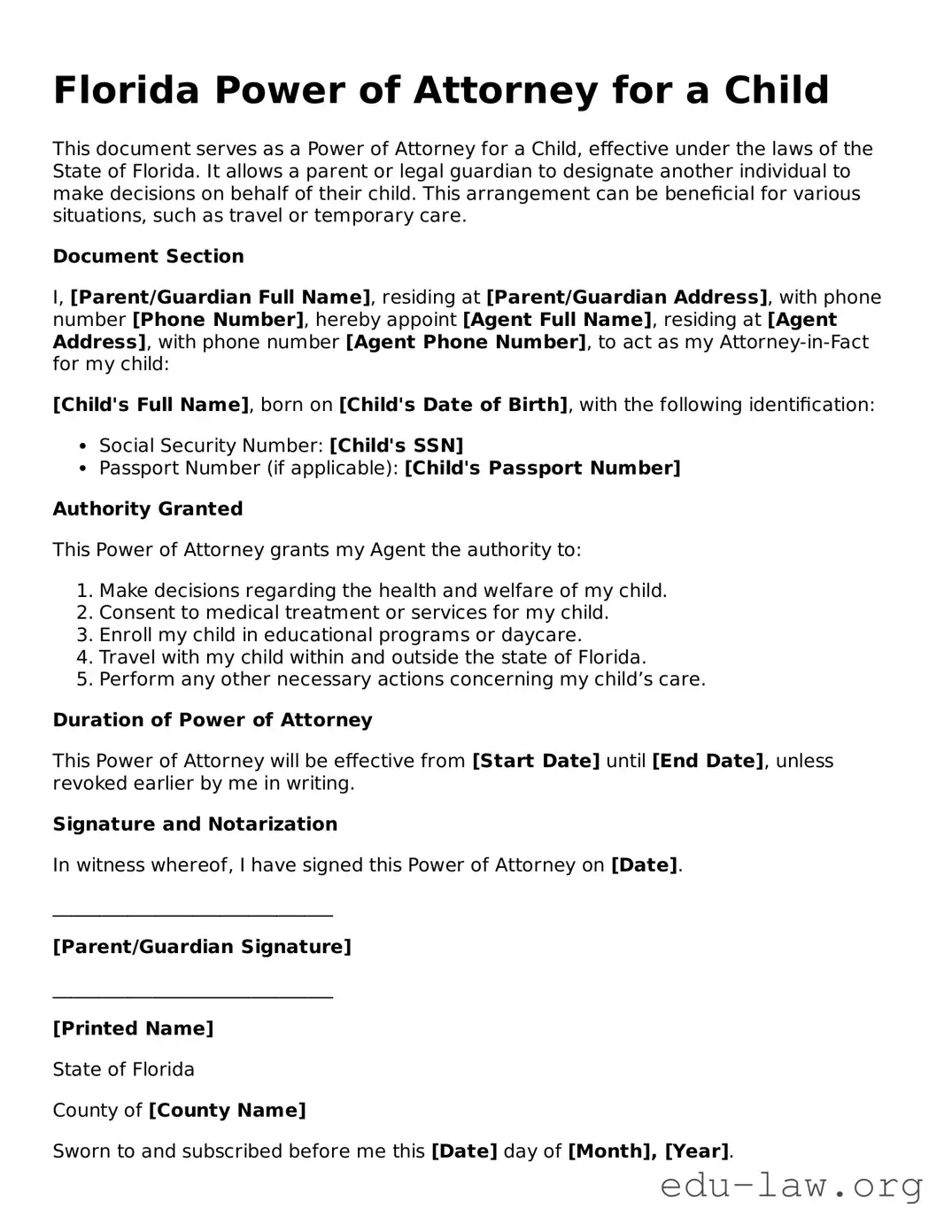Florida Power of Attorney for a Child
This document serves as a Power of Attorney for a Child, effective under the laws of the State of Florida. It allows a parent or legal guardian to designate another individual to make decisions on behalf of their child. This arrangement can be beneficial for various situations, such as travel or temporary care.
Document Section
I, [Parent/Guardian Full Name], residing at [Parent/Guardian Address], with phone number [Phone Number], hereby appoint [Agent Full Name], residing at [Agent Address], with phone number [Agent Phone Number], to act as my Attorney-in-Fact for my child:
[Child's Full Name], born on [Child's Date of Birth], with the following identification:
- Social Security Number: [Child's SSN]
- Passport Number (if applicable): [Child's Passport Number]
Authority Granted
This Power of Attorney grants my Agent the authority to:
- Make decisions regarding the health and welfare of my child.
- Consent to medical treatment or services for my child.
- Enroll my child in educational programs or daycare.
- Travel with my child within and outside the state of Florida.
- Perform any other necessary actions concerning my child’s care.
Duration of Power of Attorney
This Power of Attorney will be effective from [Start Date] until [End Date], unless revoked earlier by me in writing.
Signature and Notarization
In witness whereof, I have signed this Power of Attorney on [Date].
______________________________
[Parent/Guardian Signature]
______________________________
[Printed Name]
State of Florida
County of [County Name]
Sworn to and subscribed before me this [Date] day of [Month], [Year].
______________________________
[Notary Public Signature]
[Notary Public Printed Name]
My Commission Expires: [Expiration Date]
